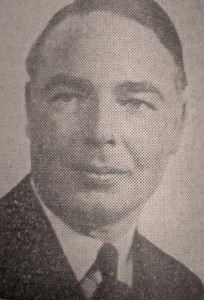NATIONAL LIBERAL FIGURES IN HISTORY
Hoare-Belisha (1893–1957)
Leslie Hoare-Belisha is remembered as the man who introduced pedestrian crossing markers known as ‘Belisha Beacons’. He was also a leading member and founder of the Liberal National Party (1931).
To combat the effects of the Great Depression he and a number of other Liberal  MPs believed that the imposition of tariffs was the only way that British industry could be protected from ‘export dumping’ from abroad. Only when everyone was protected could tariffs be removed through negotiation for mutual benefit (similar to Nuclear ‘downsizing’). The price to pay for following that policy was a split in the Liberal Party between Liberals and Liberal Nationals.
MPs believed that the imposition of tariffs was the only way that British industry could be protected from ‘export dumping’ from abroad. Only when everyone was protected could tariffs be removed through negotiation for mutual benefit (similar to Nuclear ‘downsizing’). The price to pay for following that policy was a split in the Liberal Party between Liberals and Liberal Nationals.
An ambitious man and a brilliant speaker he was quickly elevated to a Ministerial career in a ‘National (cross-party) Government’ starting in the Treasury, excelling as Transport Minister but failing ignominiously as Secretary State for War.
Liberal National politicians largely split into two types; those who stayed in their ranks for personal and practical reasons and those who believed they represented an alternative Liberal tradition* to that which they had left behind in the Liberal Party. Prior to 1940 Hoare-Belisha fell into the latter group. He was active in trying to develop the party structure, a prolific writer and was eager to carve out an independent role for the LN’s. He said ‘We shall have to fight and I think take the offensive for the soul of Liberalism, maintaining we are in the Rosebery tradition.’ This was roughly translated as – the national interest first when abroad and social reform first when at home. Sacrificing a modicum (or so they thought!) of independence by being in a National Government (which included Labour and (mainly) Conservatives) was also seen as ‘putting the Country first.’
Like many LN members however there was always a dynamic tension between being in partnership yet maintaining their independence. Some feared being swallowed up by their Conservative partners (as occurred to the Liberal Unionists decades earlier) and ultimately drifted back to the Liberals whilst others succumbed to absorption. Hoare-Belisha had fought to maintain the LN’s independence but he reacted badly to his sacking as Secretary of War in 1940 amidst accusations (and counter) of anti-semitism and war mongering. He never forgave his LN Ministerial colleagues for their resultant lukewarm support in Cabinet.
He subsequently became an (National) Independent MP but lost his seat in the Labour landslide in 1945. He later drifted into the Conservative party. A sad end to a promising career.
Of course with courage and luck the LN’s might have carved out an independent future (from the Conservatives and (social) Liberals) and continued as an important political force. Hoare-Belisha is likely to have remained one of them.
* Other articles on the site explore this tradition.
Date: January 22, 2011
Categories: Articles































